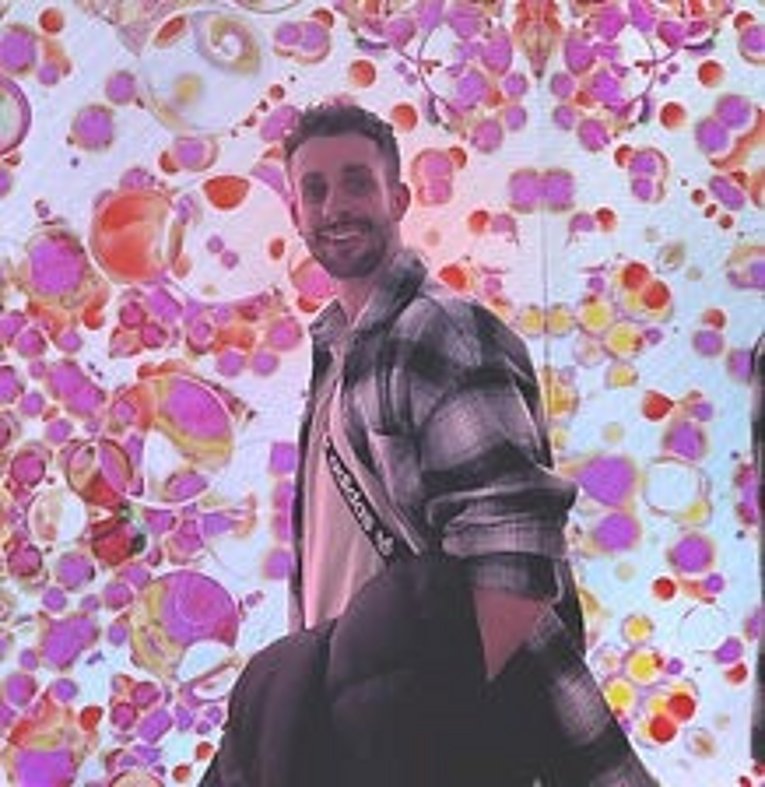
Yanni Schneider
Yanni studied Molecular Medicine at the Friedrich-Alexander-University Erlangen-Nuremberg and is a PhD student in the Department of Molecular Neurology at the University Hospital Erlangen. His research focuses on the characterization of astrocytes in the context of neurodegenerative diseases. This analysis serves to describe in more detail this highly plastic cell population in different brain regions including associated cellular and molecular processes. Deciphering the role of astrocytes in neurodegenerative processes could, in the long term, provide new therapeutic approaches to slow or stop the progression of neurodegenerative diseases.
Why did you become a scientist?
During my FSJ at the German Red Cross, I was often in contact with neurologically ill patients and their relatives. From the beginning, I was interested in which cells and cellular processes are altered in these diseases and whether there are ways to influence them. From initial purely biochemical analyses during my bachelor's thesis, to genetic alterations in human stem cells in my master's thesis, I finally arrived at the characterization of a single cell population for my PhD.
What do you find most interesting about your research field?
Astrocytes represent a highly heterogeneous cell population. In contrast to the initial classifications such as type A1 and A2, representing "bad" and "good," it is now clear that the astrocytic population differs significantly both in different regions of the CNS and depending on endogenous and exogenous influences. Uncovering expression patterns under pathological and physiological conditions makes the field particularly exciting and interesting.
What are you currently working on?
Currently, I am trying to better understand the role of astrocytes in the motor areas affected in multisystem atrophy. For this, I use immunohistochemical staining methods and isolate astrocytes directly from tissue to find out the differences between health and disease.
What do you hope to achieve with your research?
I think the ultimate focus of research is on new therapeutic approaches to mitigate and/or stop disease progression in patients or even ultimately prevent disease onset. By better characterizing astrocytes in the context of multisystem atrophy, I hope to lay the foundation for a better understanding of these cells and, in the long term, new therapeutic targets. Targeting signaling pathways in astrocytes could help astrocytes play a protective and supportive role in the central nervous system in various disease settings.
What comes next?
The big goal is, of course, to finish my PhD as soon as possible. After that, I would take a few 'off-days' to travel to one or the other beautiful corner. After that, I can focus on my professional future again.
When I am not on the road as a scientist, then...
... you can often find me doing sports with friends (or alone). I also try to expand my board game collection and of course play games (secret tip to relax after a long day in the lab).
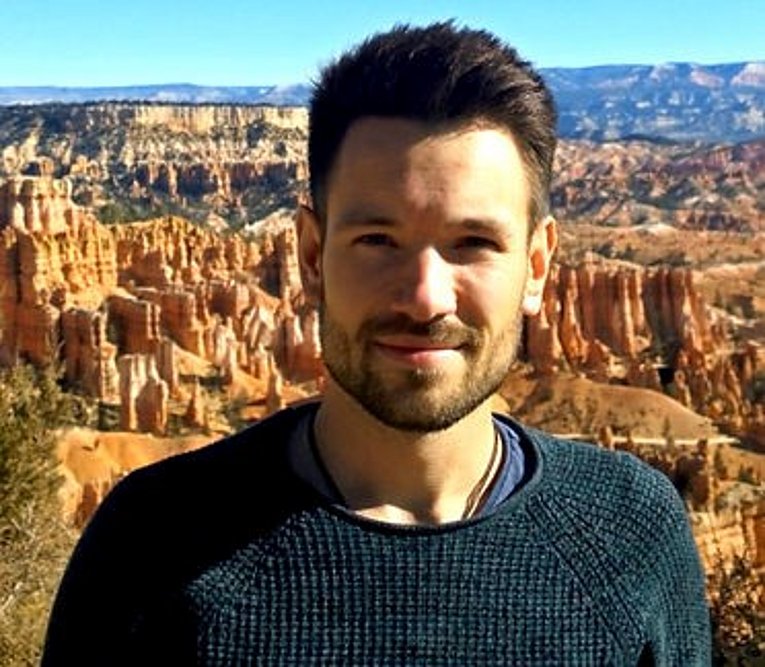
Benjamin Lohrer
Ben studied molecular biology with a focus on neuroscience and is a PhD student in Medical Research at LMU Munich. He is conducting research at FAU Erlangen-Nuremberg on the molecular reprogramming of non-neuronal cells in neurons. The studies are expected to provide new insights into human-specific mechanisms in the generation of neurons and could provide a basis for future cell replacement therapies that can help people with strokes, brain injuries or neurodegenerative diseases.
What is your research focus?
In my project, I am working on reprogramming pericytes (which are cells that attach to blood vessels in the brain) into neurons. To do this, I culture human pericytes taken from patients' brains in the lab and use viruses to introduce specific transcription factors into these cells that are able to change the identity of the cells. We know from previous studies in our laboratory that conversion into neurons is possible - my aim now is to better understand this process and also to be able to direct it. To do this, I add different molecules during reprogramming that block different signaling pathways in the cells and then study the effects on the cells' gene expression. For example, manipulating the signaling pathways leads to increased or more targeted reprogramming. Starting out as a pure cell culture project, my project now relies heavily on bioinformatics analyses.
What excites you most about science or in your field?
Besides the brain, which I have always found fascinating as the most complex human organ, I find it incredibly exciting that it has been possible to change the identity of cells for a few years now, and I am happy to be able to contribute more to the understanding of these processes. I also like the variety in my job - working in the cell culture in the morning, for example, and performing complex analyses on the PC in the afternoon, as well as maintaining scientific exchange through national and international meetings.
What's next?
In a few months, I want to finish my doctoral thesis. For this and for an upcoming publication, I am currently working on various analyses and graphics.
When I'm not on the road as a scientist, I ...
... I cook, travel (at least when there is no pandemic) or play board games with friends.
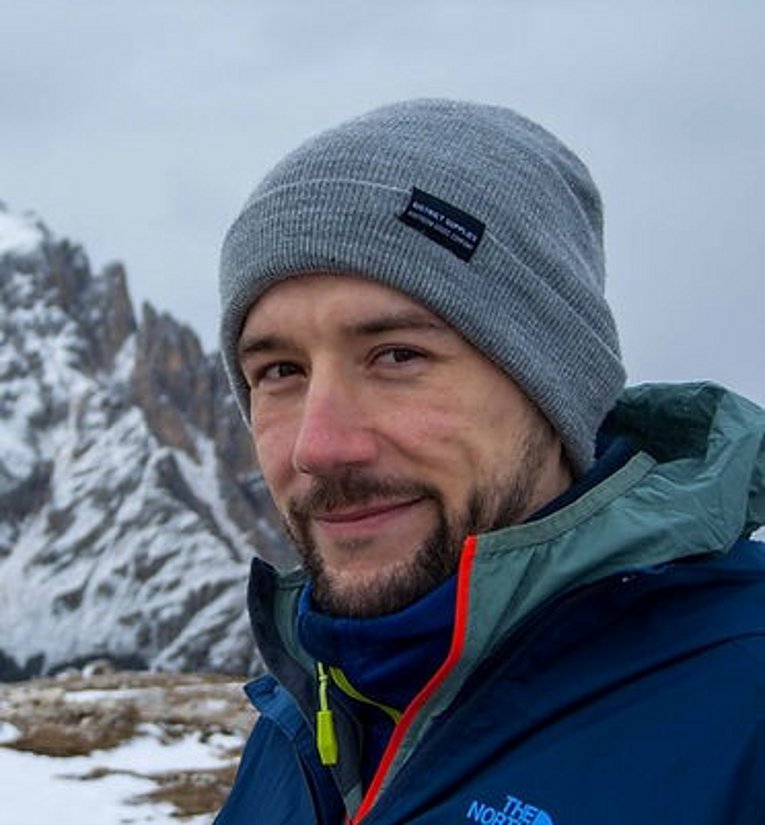
Tom Börstler
Tom is a research associate at the Stem Cell Biology Department at the University Hospital Erlangen. In his project he is investigating different protocols for the generation of pluripotent stem cells. Tom`s results can be used to further develop the establishment of standardized protocols - after all, a major problem in current research is reproducibility.
What is your research focus?
In the world of stem cell-based neuroscience, there are several ways to generate cerebral cortex neurons from pluripotent stem cells (pSCs). I am currently comparing different protocols to establish a standard protocol for ForInter. In such a larger research network, it is important that we use the same protocols to better compare our results. I also generate protocols for methods that provide us with as much information about our precious cells as quickly and/or simultaneously as possible.
What excites you most about science or in your field?
Working with pSZ allows us to do research on human living neurons in a unique way. Every time we generate these neurons from pSZ, I get excited by looking through the microscope every day to see how the cells transform.
What's next?
Once the standard protocols are completed, I would like to use them to explore developmental disorders of the nervous system. There are many exciting questions to answer and in the process I would like to learn new bioinformatics methods.
When I am not on the road as a scientist, I am ...
...I am working on finishing my studies in human medicine. I use my free time for horseback riding, bouldering/climbing and cycling. I also enjoy a free weekend to visit family or friends.
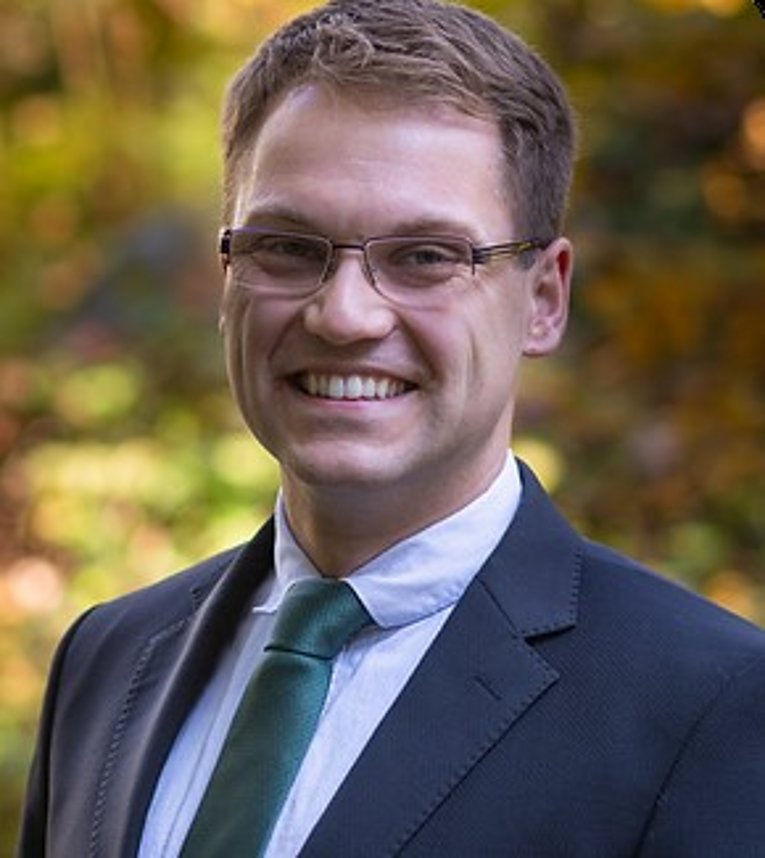
Hannes Wolff
Hannes is a research assistant and doctoral student at the Chair of Constitutional and Administrative Law, Public International Law, European and International Economic Law of Prof. Dr. Hans-Georg Dederer at the University of Passau. In the context of the ForInter project and his doctoral thesis, he is dealing with ethical and legal issues of research with and application of iPSZ-derived brain cells. To this end, he is analyzing the current legal situation with regard to comparable debates and issues and is investigating at which points the findings from these can be applied to cerebral organoids and at which points completely new regulations need to be drafted. Among other things, this should help to ensure greater safety for researchers and, on the other hand, increase understanding and acceptance among the general public.
What is your research focus?
I am investigating ethical and legal issues, especially in relation to brain organoids. This primarily involves questions of medical consent and here again focuses on research with tissue processed into iPSCs or brain organoids and also on questions that we do not yet know will arise one day. I am also looking at issues of a possible (constitutional) protected status of brain organoids, which are much more advanced than the brain organoids that exist today, and looking at privacy issues related to human brain tissue.
What excites you most about science or in your field?
What excites me most about my work is that I get to do research on a very current topic. Legal issues often have a reputation in society for being dry and boring. But when you have to take into account current developments in the natural sciences, especially in biology, as I do here, even the most theoretical questions can become highly interesting. The only thing better would be if I could grow cerebral organoids myself in my desk drawer, but unfortunately that doesn't work out yet.
What's next?
We have already written two papers in the project on the topics we are dealing with. The first one will be published in the journal "Medizinrecht" in September, for the second one the manuscript is in the very last phase of revision. After that, I still have to finish my dissertation.
When I am not on the road as a scientist, then ...
... I like running and rowing and have just discovered via ferrata for myself. I also play the clarinet in an orchestra and occasionally do shifts as a paramedic for the rescue service.
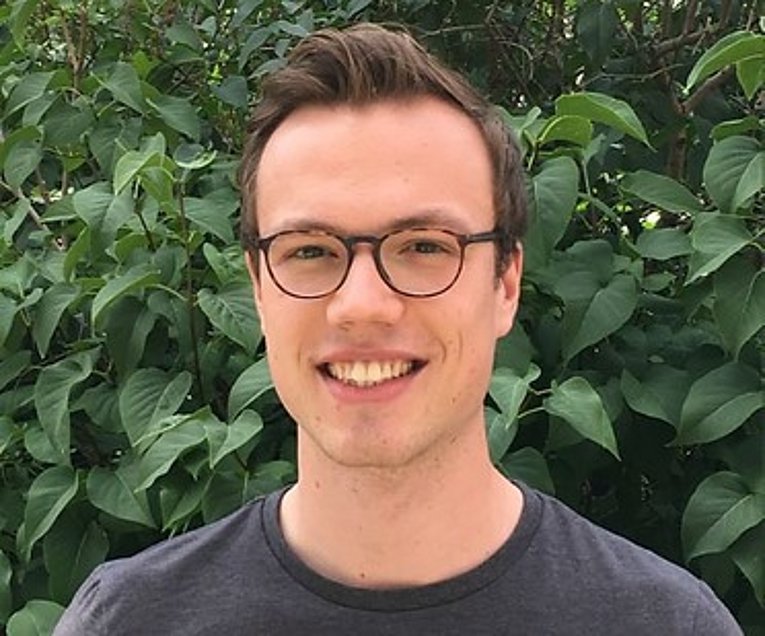
Jonas Lanfer
Jonas is a medical doctoral student in the Stem Cell Biology Department at the University Hospital Erlangen. In his project, he is researching the function of microglial cells in Parkinson's disease. Similar to Johanna (Johanna's article), Jonas first generates microglial cells from human induced pluripotent stem cells (iPSCs) for this purpose. In a second step, he then investigates how the microglial cells respond to different stimuli that play an important role in the development of Parkinson's disease. This project aims to gain new insights into the role microglial cells play in the degeneration of neurons in Parkinson's disease.
What is your research focus?
In my project, I am trying to gain insights into how human microglial cells behave in Parkinson's disease.
What excites you most about science or in your field?
What excites me most is the possibility of discovering something entirely new that can then be used as an approach to help people with serious diseases. My project is at the interface between neuroscience and immunology. It is fascinating to see how diverse and sophisticated our immune system is and how many diseases it plays a prominent role in causing.
What's next?
In addition to the doctoral thesis, the next big hurdle in my studies is the second state exam next spring. After that, it's time for the practical year.
When I'm not on the road as a scientist, then ...
...I do sports, watch sports on TV or meet friends in the beer garden.
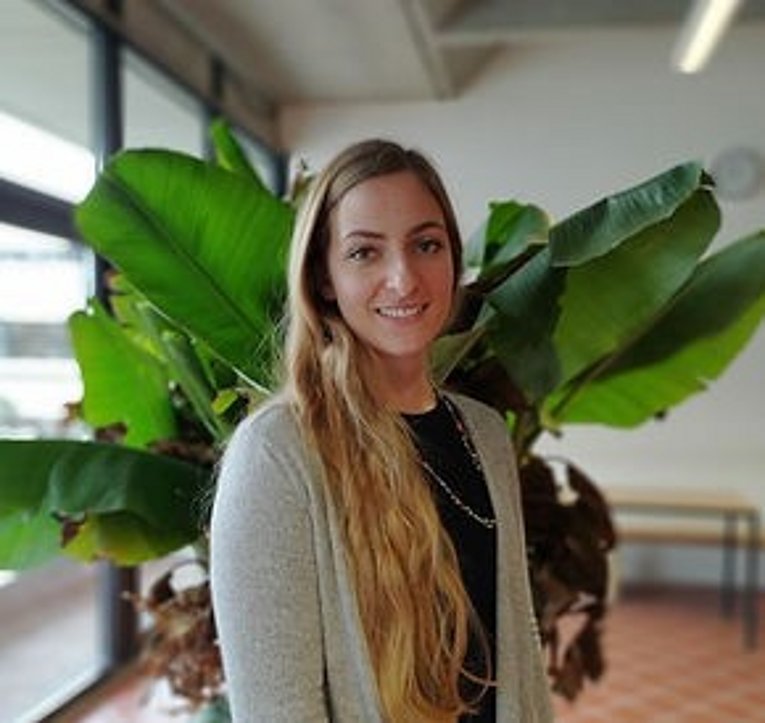
Johanna Kaindl
Johanna holds a PhD from Friedrich-Alexander-Universität Erlangen-Nürnberg and is currently in her final year of PhD researching neuron-microglia cell interactions in the Stem Cell Biology Department. For this purpose, Johanna generates human microglia-like cells from IPSZ (induced pluripotent stem cells) of patients with familial leukodystrophy and characterizes the interaction of neurons and microglia in 2D and 3D models. This approach will help elucidate the impact of human microglia in this familial, very rare leukodystrophy.
What is your research focus?
My research focuses on the cell-cell interaction of neurons and microglia. For this purpose, I establish various culture systems, including organoids.
What excites you most about science or in your field?
I love trying out new methods. I also find simple laboratory work and cell culture very interesting and varied. It's great to be able to observe cells in the microscope every day.
What's next?
Finishing my PhD thesis next week! Continue to support the lab and ForInter.
When I am not on the road as a scientist, then ...
...I play squash, take care of my balcony and spend time with my niece and nephews.
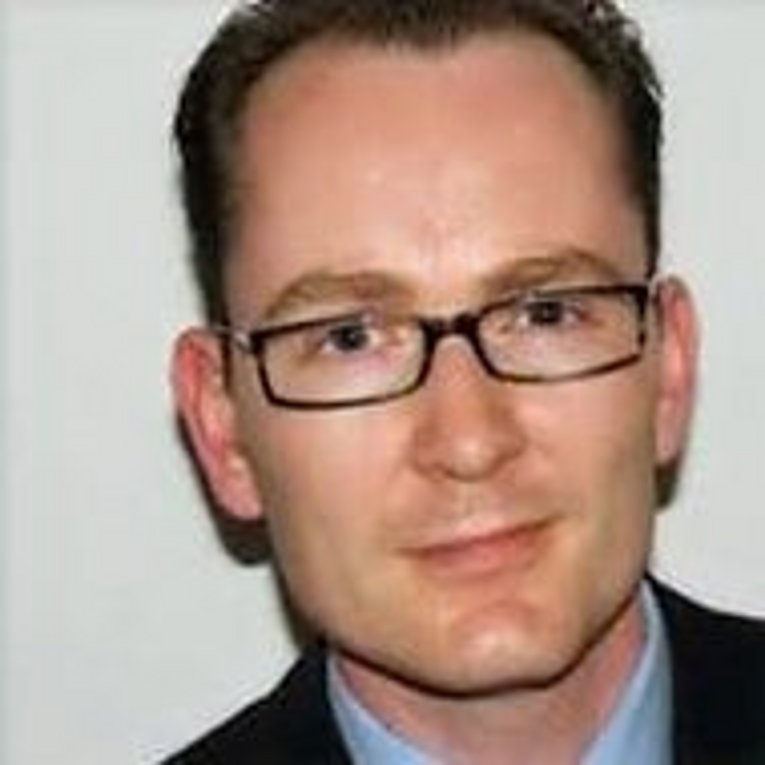
Dr. Frank Braun
Frank is a postdoctoral fellow in the Department of Neuropathology in Regensburg, Germany. His scientific career focuses on the analysis of cancer-related signaling pathways and the development of cancer models as tools for preclinical research.
Why did you decide to become a scientist?
I was always attracted by the ideal image of the scientist, the seeker after truth. It was only later that I decided to go in the direction of biology.
What appeals to you most about science or your field?
As a scientist, you can basically work anywhere in the world, which is a very interesting aspect of this profession. It's nice to meet people from different cultures and every project brings new challenges. So it never gets boring as a scientist.
What are you researching or currently working on?
My current research is on brain tumor diversity and how to best map it using cell culture models.
What do you want to achieve with your research?
As with most clinical research projects, the patient is at the center. My goal is to use the generated cell culture models to contribute to the development of new therapeutic concepts.
What tools/methods would you change to improve science in your field?
The application of bioinformatics, which is necessary for understanding and analyzing e.g. sequencing data, still needs to become much more user-friendly. Above all, as it becomes cheaper and cheaper to sequence samples, the group of people who are confronted with the analysis is also growing. Uniform standards, not only in sequencing but also in evaluation, are of great importance. The aspect of comparability of data is especially important to consider here.
What's next?
For my current research project, familiarization with current bioinformatics methods is the next challenge.
